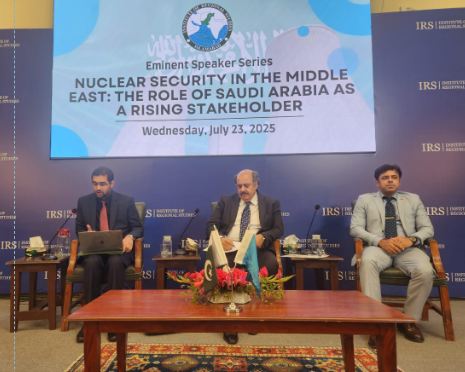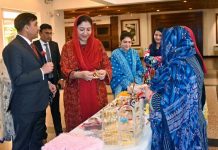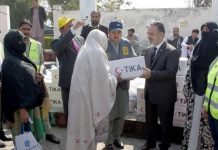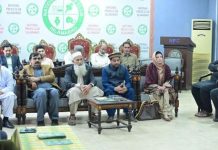ISLAMABAD, JUL 23 /DNA/ – The Institute of Regional Studies (IRS) hosted an insightful talk on “Nuclear Security in the Middle East: The Role of Saudi Arabia as a Rising Stakeholder”, focusing on the country’s evolving nuclear trajectory amidst the complexities of a volatile regional landscape.
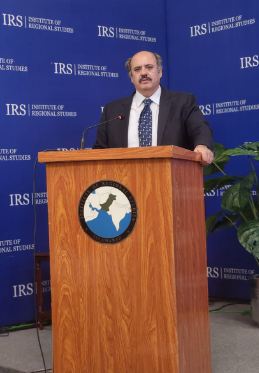
Dr. Rizwan Naseer, Senior Research Fellow at the Institute of Regional Studies, delivered the opening remarks, emphasizing the critical importance of nuclear politics for scholars in the field of strategic studies. He highlighted the growing relevance of nuclear governance regimes such as the Non-Proliferation Treaty (NPT) in light of increasing proliferation challenges and international pressure on nuclear-capable states.
The principal talk was delivered by Dr. Zafar Nawaz Jaspal, Dean and Meritorious Professor at the School of Politics and International Relations, Quaid-i-Azam University. Dr. Jaspal discussed both the opportunities and challenges associated with nuclear energy for Saudi Arabia, noting its evolving nature, particularly in response to ongoing conflicts in the Middle East including the resurgence of inter-state warfare after nearly three decades.
Dr. Jaspal identified four primary drivers behind Saudi Arabia’s nuclear policy. “One of the drivers of Saudi Arabia’s nuclear policy is the strategic competition with Iran, followed by Iran’s ability to remain within the NPT and pursue its nuclear potential. The third driver is the transformation in international politics, followed by the sustainability and durability of nuclear energy.”
Addressing concerns surrounding nuclear energy, Dr. Jaspal contended that much of the alarm is rooted in the nuclear energy’s capacity to reshape the nature of warfare. He argued that while all forms of energy carry risks, the consequences of nuclear accidents are statistically less severe than those associated with coal mining, a point often highlighted by nuclear energy proponents. Dr. Jaspal highlighted the internal and external challenges faced by Saudi Arabia including internal terrorism, radical extremism, threat from the Houthis and Iran’s ‘Axis of Resistance’. He asserted that under Article III & IV of the NPT, Saudi Arabia holds the right to acquire nuclear technology for peaceful purposes. He further noted that civilian enrichment facilities carry the potential to be repurposed for the production of nuclear weapons material.
The seminar concluded with an engaging Q&A session. Dr. Jaspal underscored the reality that technology knows no borders and nuclear technology is no longer novel, making it attainable for any state. He further noted that Saudi Arabia’s potential acquisition of nuclear weapons could heighten the regional security dilemma, particularly given Israel’s opposition to such a development. Towards the end, he stressed that any decision made by Saudi Arabia in this regard will have significant implications for regional stability.

